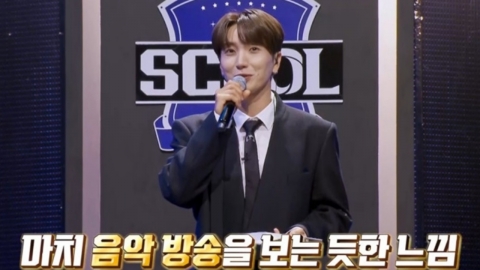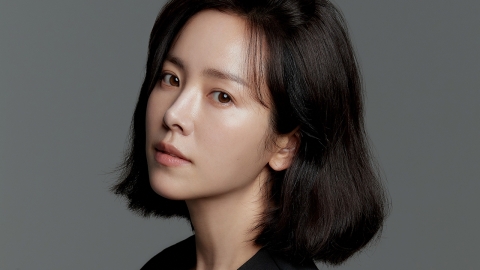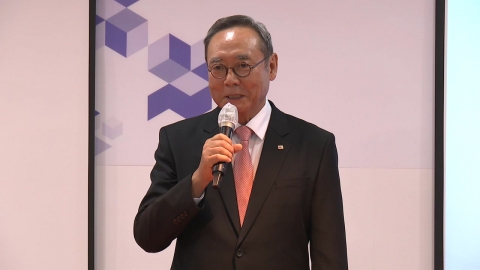■ Starring: Kim Yeol-soo, Director of Security Strategy at the Korea Institute for Military Affairs
* The text below may differ from the actual broadcast content, so please check the broadcast for more accurate information. Please specify [YTN NewsNOW] when quoting.
[Anchor]
Former President Trump's election is expected to change our security landscape. President Yoon Suk Yeol is said to have "decided to meet at an early date" in a telephone conversation with President-elect Trump. Let's talk with Kim Yeol-soo, head of the Security Strategy Division at the Korea Institute for Military Affairs.
[Kim Yeolsoo]
Hello,
[Anchor]
There is a lot of attention on the future chemistry between President Yoon Suk Yeol and President-elect Trump, and this is the first phone call we talked about. It's not important, but we had a phone call before Japan?
[Kim Yeolsoo]
I think it was done about 90 minutes before Japan. So I think the most important countries for President Trump are Israel and Saudi Arabia, so I called them first and then came to East Asia and talked to China on the phone, followed by Korea and Japan.
[Anchor]
Of course, who talked on the phone first, this is not the key, but which country did it first and how many minutes did you talk on the phone, it always becomes a hot topic after you are elected president.
[Kim Yeolsoo]
That's right. If you look at the past, from the perspective of the United States in 2016 and 2020, Japan is the basic axis of East Asia. So, I always went through Japan first, but in this year's case, I think I talked to our president first. There are a lot of things to talk about with Korea right now. In particular, the North Korean issue was at the core. Let's discuss such issues as North Korea's dispatch of Russian troops, flying filth balloons, GPS jamming, and missile firing, and further developing the Korea-U.S. relationship. Let's meet as soon as possible by setting a date and place. That's because we've reached an agreement so far. I think there will be a possibility of that soon.
[Anchor]
As you said, there is a lot to talk about between Korea and the United States. However, it is said that former President Trump talked about this on the phone with President Yoon Suk Yeol. Let's hear what President Yoon Suk Yeol said yesterday.
Usually, the first call between South Korea and the U.S. talks about North Korea, but it's not that, but they also talked about the shipbuilding industry.
[Kim Yeolsoo]
We talked about North Korea, but we talked about the shipbuilding industry. It's two dimensions. President Trump brought this up. One is on the economic level and the other is on the security level. From an economic point of view, isn't the shipbuilding industry 3D? So, it is not an exaggeration to say that the shipbuilding industry has virtually disappeared in the United States. So, from an economic point of view, the shipbuilding industry is eventually created there, and when the shipbuilding industry is activated, jobs for American workers are eventually given. President Trump probably considered that economic dimension.
I think the second dimension is probably more important than this, the security dimension. In fact, I am well aware that the warships made by South Korea are making world-class warships. That's why it's actually called MRO as well as warship exports, which means repair, maintenance, and repair of ships. I was saying that I wanted cooperation on this as well. I think the security dimension was probably greater.
[Anchor]
Looking at the analysis of various experts, this is also quite a purpose to keep China in check. Recently, in China, it is called marine excavation. rise from the sea As I emphasized such things, there were many people who said this for the purpose of checking China in the United States.
[Kim Yeolsoo]
Exactly, I agree with that. China is a continental country, and the United States is a maritime country. The core of a maritime country is to eventually become the standard for expressing themselves to maritime forces with warships, aircraft carriers, and submarines. In fact, in the case of the U.S. military, whether it is a warship, an aircraft carrier, or a submarine, it takes two to three years to repair and repair the ship once. This becomes a very serious problem.
Another problem is that in terms of the number of aircraft carriers, there are only 11 in the United States and 3 in China, so the game is not played, but the combat ships are very different. In the case of combat ships, China has 370 ships, whereas the United States has only 270 ships now.
[Anchor]
It's the first military power, but there's a big difference.
[Kim Yeolsoo]
So this has been a constant issue here during the Biden administration. But how fast you catch up with this is ultimately related to the president's will. That's why President-elect Trump expressed his strong will on this, saying, "Let's join forces to build U.S. warships, repair, repair, and repair battleships while raising shipbuilding from Korea and shipbuilding together." This can be seen as such an act with China in mind.
[Anchor]
I don't think many people between South Korea and the U.S. thought that former President Trump would be elected and the first keyword would be shipbuilding, but since former President Trump picked shipbuilding anyway, can the link be in the Korea-U.S. alliance or negotiations?
[Kim Yeolsoo]
It can be a link, but I don't think it's directly linked to the IRA issue or the Chips Act from an economic point of view, whether it's the defense cost sharing issue that President Trump is talking about, the tariff issue or the FTA revision issue. At least I don't think we're going to exchange this part. I think there's enough to exchange with other things.
[Anchor]
Anyway, the fact that President Yoon Suk Yeol talked about shipbuilding while mentioning the contents of this telephone conversation at an official meeting can be considered to imply that we are ready to cooperate.
[Kim Yeolsoo]
That's right. And from President Trump's point of view, in the case of high-tech industries, there are a lot of Samsung, SK, and Hyundai in Korea, right? We've invested a lot, and now, in addition to that, so-called traditional industries, President Trump is greedy now, and that has the meaning of security to keep China in check at the same time as thinking about American workers.
[Anchor]
The most important and interesting part is what kind of stance will Trump take against North Korea when he officially takes office. During the election, former President Trump said many things about Chairman Kim Jong-un. Let's listen to what we talked about.
[Anchor]
Since Trump has continued to show off his friendship with Kim Jong-un, isn't he saying, "Let's call Kim Jong-un and meet him as soon as he officially takes office?" There are a lot of people who think that.
[Kim Yeolsoo]
That's a possibility. From the perspective of the United States right now, there is probably a priority for policy. Even though we're in middle and high school, if we get a test question, we solve easy questions first and put the difficult ones back a little. North Korea's nuclear issue is definitely not an easy one. So rather, the policy priority now is the Russia-Ukraine war and the Middle East, which is probably ahead.
If the problem is resolved to some extent, it will probably move on to the North Korean nuclear issue. If that happens, rather than calling as soon as you take office or something like this, first of all, I'll focus on the two issues I mentioned a while ago, and then I'll move on to the North Korean nuclear issue. I think there will be a nuclear negotiation at least once. So North Korea itself has continued to raise the ransom with these things in mind last time.
So, we purposely disclosed the centrifuge facility and unveiled a vehicle that can be loaded with 12-axis, 24-wheel large missiles. And they also shot the Hwasong-19 and a few days ago they launched the KN-25. I think all these measures represented Trump's willingness to become president.
On the other hand, I have shown that I can make concessions to this extent if a nuclear deal is reached. So if you can give this much concession, it's centrifuges, so this can produce nuclear material. So I can give up on the future nuclear. And since it's ICBM, ICBM is the most important thing from the perspective of the United States. ICBM can yield, that's all. But we will not change the nuclear force policy. Then don't touch the nuclear weapons of the past, so-called nuclear weapons made so far. So we could say let's have a nuclear deal.
To put it simply, it can be seen as a nuclear disarmament negotiation, but from the perspective of the United States, there is an open possibility of nuclear disarmament talks as an interim measure with North Korea's denuclearization as a matter of the distant future. But rather than taking office right away, it takes a little time, so I think there will be a meeting.
[Anchor]
North Korea has not made an official position on Trump's election.
[Kim Yeolsoo]
That's right. There isn't. Yet.
[Anchor]
What will Chairman Kim Jong-un's inner thoughts be like? I'm glad to hear that. What do you think?
[Kim Yeolsoo]
If you look at Chairman Kim Jong-un, he has taken various measures in order to hope that Trump will become president anyway. So in a way, we can meet at least once, but that doesn't mean we can call or do it now. You'll also judge yourself to some extent. The moment I call you, I'm entering from the perspective of the weak.
[Anchor]
Didn't you exchange letters before?
[Kim Yeolsoo]
It's an old problem. So now, when I make a phone call, I raised the ransom to negotiate well, but there is one result of lowering the ransom. The second is that the trauma of Hanoi in February 2019 will remain for a very long time. It was a critical blow to Kim Jong-un's leadership, which is called Mu-ryu-seong. That's why I personally think that rather than calling directly, maybe I'll wait a little bit.
[Anchor]
We organized it in a graphic form. The Hanoi summit, a painful memory of losing face for Chairman Kim Jong-un. I went by train for a really long time, but I went back without any results. Is Chairman Kim Jong-un left such painful memories of the North Korea-U.S. summit and meeting with Trump? Or is it a meeting you want to meet again?
[Kim Yeolsoo]
I remember being sick at least once. I have painful memories, but if I negotiate well with Trump, even if I leave denuclearization as a distant future thing, at least if President Trump doesn't say anything about the past nuclear weapons, even if it's not officially said, it's recognized. That's what I'm hoping for right now. Instead, what would North Korea receive in return? That's the lifting of UN sanctions on North Korea, and the lifting of the US sanctions on North Korea itself. If you say so, you can think that it's worth trying.
[Anchor]
In any case, there are many rumors that the possibility of sitting face to face at the top table of the U.S. and North Korea has increased because Trump has become Trump, so we are maintaining a hard-line policy toward North Korea. Should our policy toward North Korea change? There's also this analysis. How do you see it?
[Kim Yeolsoo]
North Korea policy is now peace through power. So peace in words can never come about. Without power, there can never be such a thing as peace. No matter how much the sheep talks about peace, it's no use in front of the lion. Peace through strength is essential because of the possibility of doing so. Instead, there can be things like this. Whether to leave it as it is even if negotiations between North Korea and the U.S. are made. Otherwise, let's negotiate together with the three of us, the two Koreas, and the United States, so we'd better suggest it.
Nevertheless, if the U.S. or North Korea only considers negotiations between the U.S. and North Korea, then let the two Koreas negotiate first, and then negotiate between the U.S. and North Korea. In addition, there should be policy cooperation with us in advance on what content and how to proceed with the North Korea-U.S. negotiations with North Korea. We need to talk about that.
[Anchor]
Anyway, it's only a matter of time before the leaders of South Korea and the U.S. will meet soon to talk about the form of negotiations on the North Korean issue. Lastly, the most important issue was the cost-sharing issue. What strategy should we go for this?
[Kim Yeolsoo]
The defense cost contribution was already settled last September. So, the defense cost negotiation fee that will be applied from 2026 is about 1.52 trillion won. But what President Trump has been saying is to pay $10 billion. If it's $10 billion, it's 14 trillion at the current exchange rate. Then 1.5 trillion to 14 trillion won is almost 10 times the amount. In fact, President Trump has a lot of bluster and is a master of negotiations. Let's call it out loud when negotiating. So the unit itself is different. So pay 10 billion dollars, and it can be reduced in the process of negotiations. And I think the possibility of renegotiation is open.
So what I'm trying to tell you here is this. Let's renegotiate by paying $10 billion under the Trump administration. But if we keep delaying the negotiations by saying that we can never pay $10 billion, we're going to talk about other things in the U.S. Then we can talk about reducing U.S. troops in Korea, not conducting joint South Korea-U.S. drills, and not deploying strategic assets. There are so many cards that the U.S. can use. If you do this, you lose both. It's Loose and Loose.
So, I think we need a win-win policy that allows each other to win, rather than this kind of jackpot. So for now, we are done negotiating, but we can negotiate again. And let's negotiate. And you just need to give it a little more. We can give it more and get it instead. I think we can probably get our own nuclear armament if the maximum is received.
[Anchor]
We need to prepare the card, too?
[Kim Yeolsoo]
So, during the first Trump administration, President Trump said it himself. Why don't you arm yourself with South Korea's nuclear weapons? We can bring it up because we've said that before. So, I think it's a win-win strategy for each other to get out of the idea of not being able to pay $10 billion unconditionally or not to negotiate and use a strategy to make some concessions with a very active and progressive idea and get the maximum profit we can get.
[Anchor]
If we raise the contribution, we have to take care of what we will get. You said something important. This has been Kim Yeol-soo, head of the Security Strategy Office at the Korea Institute for Military Studies. Thank you.
※ 'Your report becomes news'
[Kakao Talk] YTN Search and Add Channel
[Phone] 02-398-8585
[Mail] social@ytn. co. kr
[Copyright holder (c) YTN Unauthorized reproduction, redistribution and use of AI data prohibited]
Politics
More- "尹 translator." Jang Ye Chan. "Han Dong Hoon, stop talking and work."
- 尹 A vague apology, "It was the appearance of a suspected prosecutor."
- Former Secretary Kang Hoon voluntarily withdraws support for the president of the Korea Tourism Organization.
- [Breaking News] "Kim's Special Prosecutor Act" passed by the opposition-led Judiciary Committee...referral to the plenary session
![[Company] Genesis Partnership With UK Tate Modern...Sponsoring Seo Do-ho's solo exhibition](https://image.ytn.co.kr/general/jpg/2024/1108/202411081559347342_h.jpg)
![[Weather] It's mostly sunny and mild on weekends and holidays.The fall foliage in Seoul is getting thicker.](https://image.ytn.co.kr/general/jpg/2024/1108/202411081529565840_h.jpg)
!["President Yoon's approval rating is at a 17% low...Lee Jae-myung's preference for leaders was 29% and Han Dong-hoon's 14%." [Gallup]](https://image.ytn.co.kr/general/jpg/2024/1108/202411081155121181_h.jpg)
!['Kim Jong-un trapped in bars' 'advertising' on North Korean mission in Geneva, Switzerland...What does it mean? [Anchor Report]](https://image.ytn.co.kr/general/jpg/2024/1108/202411081514216240_h.jpg)
![[Site Y] "Melting action"...The difference between the 'Fiery Death II' returning after 5 years (comprehensive)](https://image.ytn.co.kr/general/jpg/2024/1108/202411081513316549_h.jpg)




